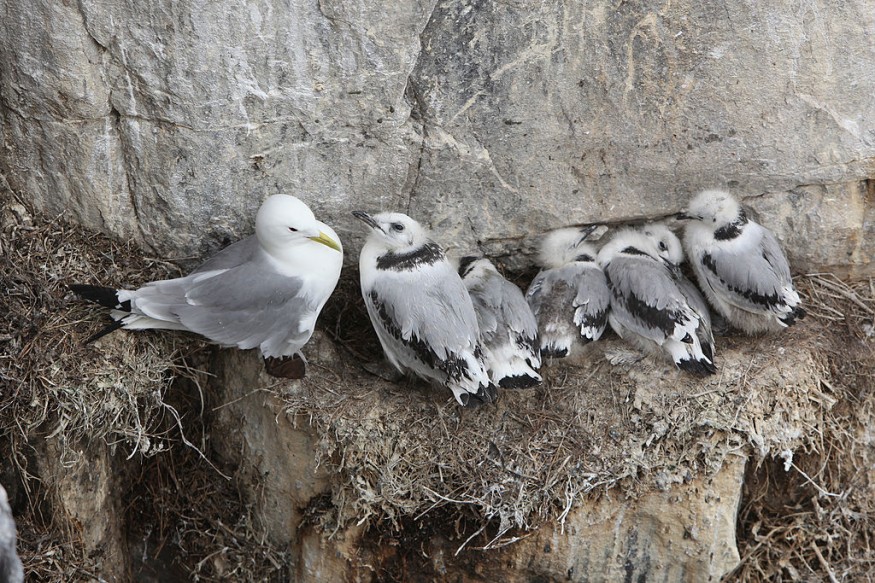A new study discovered that more compatible black-legged kittiwake couples were less likely to lose their young, which is one of the few circumstances that can lead these generally monogamous birds to start over with a new spouse.
The kittiwake is known to be the most sea-loving gull, only occasionally appearing inland and spending the winter out on the Atlantic.
It is a medium-sized, graceful, and gentle-looking gull that consumes fish, shrimp, and worms rather than scavenging at landfills like other gulls.

Matched Personality Between Seabirds
The study, titled "Links between personality, reproductive success, and re-pairing patterns in a long-lived seabird," was published in Ethology.
Researchers from the University's School of Environmental Sciences analyzed a natural population of kittiwakes in the Arctic Circle's Svalbard to determine how their personality compatibility connected to their success as parents and as a partnership.
Each bird was subjected to a personality test to determine their level of bravery, which included observing their reaction to a blue plastic penguin toy.
The researchers next analyzed personalities within matched pairings and linked them to parenting success as well as the likelihood of divorce.
They discovered that couples with greater personality differences were more likely to lose their chicks, which increased the likelihood of divorce.
This observation is particularly relevant given the kittiwakes' breeding environment. They reproduce under difficult conditions, making single-parenting difficult.
Kittiwakes reproduce in harsh environments, and a single parent cannot adequately care for their offspring, thus parents rely on one another to collect food and protect the nest.
Fionnuala McCully, Ph.D. candidate and lead author of the research, explained that seabird parents usually spend long periods of time apart when they are finding food at sea, and this means that they often need to make decisions without their partner's presence for reference.
She pointed out that if patners have similar personalities, it is possible that they also make similar decisions.
Long-term Relationship and Lifespan
Seabirds such as kittiwakes live for a surprisingly long time, often well into their 30s and beyond.
They frequently stay with the same spouse for the majority of their lives because finding a new one requires time and effort.
When they do divorce, it must be for a solid reason, such as the loss of a chick.
"After all, human relationships thrive on compatibility and our lives are easier when we can predict how our partner might react in challenging circumstances. This research suggests that animal relationships may need exactly the same thing," McCully said.
Despite being the world's most common gull, kittiwake numbers are declining dramatically due to a combination of climate change and other human activity, such as overfishing, that has made it increasingly difficult for them to bring their chicks to adulthood.
Without changes in human behavior, no amount of personality compatibility will be enough to prepare the kittiwakes for future problems.
Related Article : Endangered Kittiwake Birds Try to Reach their Nests and Fail
Related Video:
© 2025 NatureWorldNews.com All rights reserved. Do not reproduce without permission.





